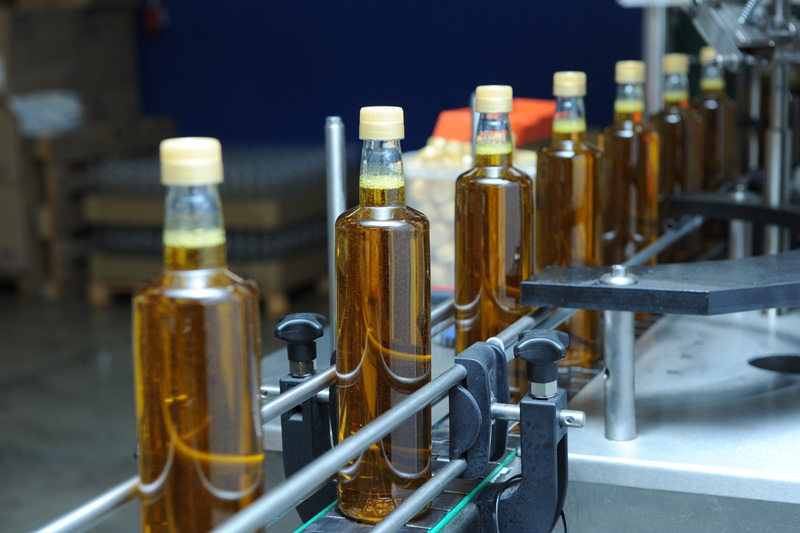* Govt plans direct purchases of oilseeds, pulses for first
time
* PM Modi seeks self-sufficiency in five years
* Imports of vegoils have grown 12 times over in two decades
* Minimum prices, guaranteed purchases this fiscal year -
sources
* Critics say state buying leads to overproduction, waste
By Mayank Bhardwaj and Krishna N. Das
NEW DELHI, July 31 (Reuters) - India is to buy oilseeds and
pulses directly from farmers for the first time this year, in
addition to its existing purchases of wheat and rice, to boost
production and close a supply gap that has driven its annual
import bill up to $12 billion.
India is the world's biggest consumer of edible oils and
Prime Minister Narendra Modi wants to make it self-sufficient in
five years. He has identified price support and guaranteed
purchases as the best ways to achieve that goal, senior
government sources told Reuters.
He faces a huge challenge: India's consumption of vegetable
oils has trebled over the last 20 years while production has
increased by less than a third. As a result, imports have risen
twelve times to 14.4 million tonnes.
"In our country we have big shortages of pulses and
oilseeds," Modi said in a monthly radio address last Sunday,
thanking farmers for growing more of the crops this year. "The
poor want pulses, and some oil to cook vegetables."
The state-run Food Corporation of India (FCI) has amassed
huge stocks of rice and wheat - often double the level it says
is needed to ensure security of supply - by ratcheting up its
minimum support prices (MSPs).
Critics say its buying encourages overproduction and the
policy has led to disputes in the World Trade Organization, with
some member states accusing India of subsidising grain output
and subverting international trade norms. ID:nL3N0T326L
Output of oilseeds and pulses has, however, lagged demand by
some distance, forcing India to turn to Indonesia and Malaysia
to buy $10 billion of oils per year, and to Austria, Canada and
Myanmar for $2 billion of pulses. Edible oil is India's
third-biggest import item after crude oil and gold.
ID:nL3N0T326L
"Rice and wheat are two of our success stories, which
illustrate that reasonably higher MSPs and a guarantee to buy
produce will encourage farmers to raise production," said one of
the sources. "That's what we've now decided to do for pulses and
oilseeds."
The FCI will start buying in October, the sources said, with
bigger purchases in March when farmers start harvesting
winter-sown crops.
FOLLOWING THE MONEY
India introduced a price support mechanism for wheat in the
late 1960s after crops failed. Support for rice soon followed
and India has since become the world's top rice exporter and a
steady shipper of wheat.
The government announces MSPs for 25 crops, but its prices
for rice and wheat have increased more than for other crops in
the past decade. In addition, the FCI only buys rice and wheat.
Mostly marginal and risk-averse Indian farmers - 260 million
of them tilling plots smaller than 2 hectares (5 acres)- take
their cue from the MSPs.
The pricing policy is seeing a shift now. For the current
season, Modi raised rice prices moderately but gave a hefty lift
to pulses. ID:nL3N0Z33TG
An over-reliance on protein-poor grain and shortages of
richer foods such as pulses have been blamed for the deaths of
1.3 million malnourished children a year in India, data from the
Food and Agriculture Organization and World Health Organization
show.
"Our idea was to first ensure supplies of staples such as
rice and wheat because countries like India and China can't
afford to import basic foodstuffs," Food Minister Ram Vilas
Paswan told Reuters.
"The world has surplus pulses and oilseeds for us but the
world doesn't have rice and wheat for countries with more than a
billion people. Having gained self-sufficiency in rice and
wheat, we'll also pay attention to malnutrition."
India spends $20 billion a year to supply cheap rice and
wheat to the poor, but 15 percent of its 1.25 billion people
still go hungry because up to half the subsidised food gets
stolen and sold on the black market, according to research
groups.
There is a risk that thefts will rise if the FCI starts to
buy oilseeds and pulses that need to be processed further to be
sold, said Tajinder Narang, a farm policy expert.
"I've my doubts about the success of the plan as FCI doesn't
have the expertise to handle pulses and oilseeds," Narang said.
"And before entering new areas, the government should first
crack down on theft."
<^^^^^^^^^^^^^^^^^^^^^^^^^^^^^^^^^^^^^^^^^^^^^^^^^^^^^^^^^
Edible oil output, imports http://link.reuters.com/nym35w
^^^^^^^^^^^^^^^^^^^^^^^^^^^^^^^^^^^^^^^^^^^^^^^^^^^^^^^^^>
(Editing by Douglas Busvine and Alan Raybould)
